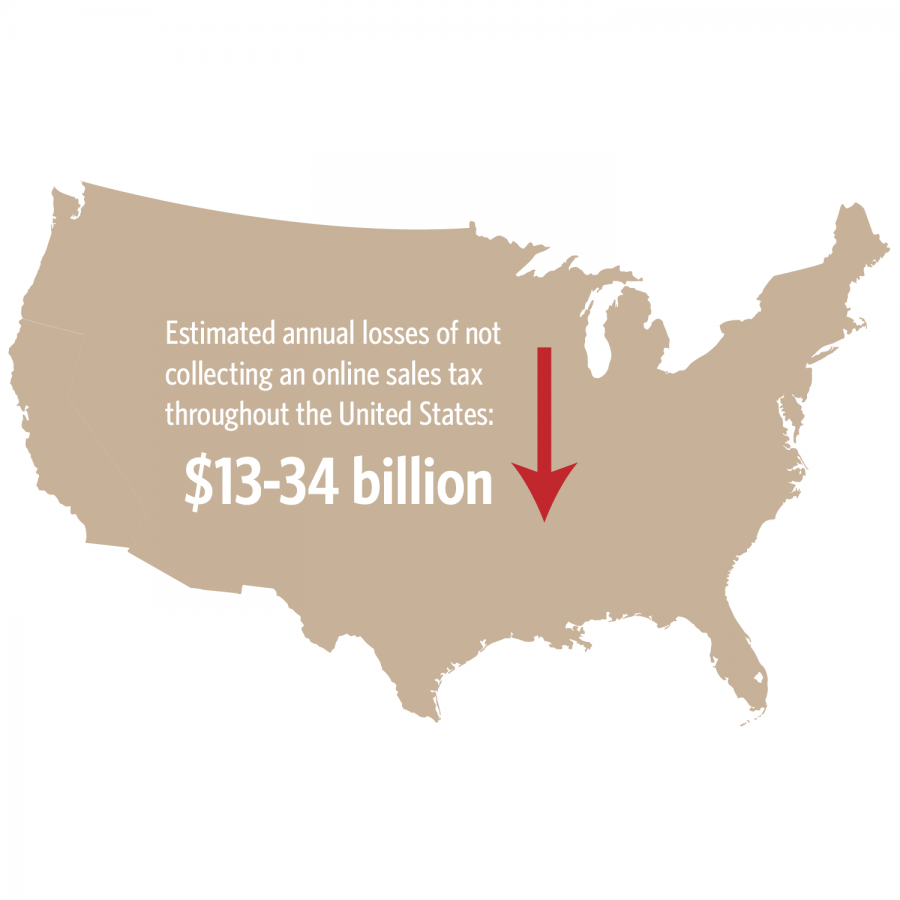Online transaction tax ruling unlikely to change consumer behavior
SOURCE: L.A. Times
Jul 19, 2018
In a five to four ruling in South Dakota v. Wayfair, the Supreme Court overturned a decision from two decades ago, giving permission to states collecting sales tax for online transactions.
The ruling is seen as a success for states because it is estimated they were losing between $13 billion and $34 billion annually from not collecting sales tax on online transactions.
Eric McDermott, economics lecturer in LAS, said in an email the ruling is beneficial for states because they can now collect taxes they have been missing out on from past years. Specifically, for states that have financial issues.
McDermott said Illinois will benefit from the ruling due to the budgetary issues. Additionally, he said the ruling will likely change the behavior of firms engaging in e-commerce.
“For the firms who were not required to collect and remit sales taxes prior to Wayfair, one impact is that it clearly will be harder for them to compete and do business,” McDermott said. “All else equal, we would expect them to earn less revenue and be less profitable because the final cost to consumers of their products will increase because of the sales taxes they have to collect.”
Get The Daily Illini in your inbox!
Michelle Diane Layser, visiting assistant professor in Law, says the media is failing to cover the bulk of what the case was about, which is being able to enforce a sales tax on online transactions.
“The ruling really wasn’t so much about whether or not states have a sales tax or not. It’s about their ability to enforce them,” she said.
States have a use tax where if a person was not charged a sales tax, they should report it to the state and pay. Layser said a minute number of people do pay those taxes. Now states can enforce the tax online, which will make it easier for states to collect their taxes.
“That’s going to make it easier for states to collect their taxes. I do think we will be able to see some evidence that states will collect more sales and use taxes now than they could under the old rule,” she said. “States are already starting to pass legislation that would make sure they are requiring out of state sellers to collect these use taxes.”
Layser said most people will most likely not necessarily notice the change of taxes on online shopping. The same can be said for younger generations such as students at the University.
“Especially younger generations that are so accustomed to online purchasing at this point. People make purchases straight from their phone,” Layser said. “When they think about buying books, they go straight to Amazon. I’m not sure if that’s tax motivating that decision.”
Aidan San, junior in LAS, said in an email he and others at the University will most likely still shop online as often as they did before the ruling was decided.
San said he noticed himself and many University students around him purchase items online. Especially when he is at school due to proximity, which habits will most likely not be hindered by the taxes.
“On campus, I don’t own a car, so if I want to get to places like Meijer or Walmart, I either have to take an Uber or a bus, which is expensive or time-consuming,” San said. “On the other hand, when I purchase something online, it arrives within a few days at my doorstep. Also, the variety of items that can be purchased online is generally larger than the variety you’ll be able to find at a store, and it is easier to search for them.”






